20+ Years Experience
Specialist Cocaine Rehab

Enquire Today For A Free No Obligation Quote
Cocaine addiction can be a devastating and isolating experience, not only for the individual suffering from addiction but also for their loved ones.
The relationship between cocaine addiction and mental health is complex, and understanding the intricacies can be key to finding the right treatment and support.
In this blog post, we will delve into the impact of cocaine on mental health, the challenges of treating co-occurring disorders, and the available strategies for recovery.
Let’s explore this compelling topic together and uncover valuable insights that could make a difference in the life of someone struggling with cocaine addiction.
Cocaine addiction can wreak havoc on an individual’s mental health, often intertwining with existing mental health problems and creating new ones.
Paranoia, aggression, and psychosis are just a few of the immediate psychological consequences of cocaine consumption.
Long-term effects, on the other hand, can include depression, mood swings, and even bipolar disorder.
The profound impact of cocaine addiction on mental health can complicate the recovery process and necessitate specialized treatment.
Cocaine use can also exacerbate pre-existing mental illnesses, further complicating the individual’s condition.
It’s evident that addressing cocaine addiction is crucial not only for the individual’s mental well-being but also for their physical health and overall safety.
Cocaine’s powerful effects on the brain can be attributed to its impact on neurotransmitters such as dopamine and glutamate in brain cells. This interference with the brain’s natural chemistry can lead to aggressive behaviour, hyperactivity, impaired decision-making, and paranoia.
Crack cocaine, for instance, is often smoked due to its rapid delivery to the brain, which in turn triggers the release of brain chemicals in the pleasure centres, providing the desired stimulating and euphoric effects. Dopamine deficiency, which is associated with conditions like ADHD, may also play a role in the development of cocaine addiction.
This connection further highlights the complex relationship between cocaine use and mental health problems, emphasizing the importance of addressing both the addiction and the underlying neurochemical imbalances during the process where depressed cocaine abusers treated effectively.
The short-term effects of (crack) cocaine use can be both intense and fleeting, with cocaine users often experiencing intense euphoria, pleasure, and ecstasy for a brief period, followed by arousal, restlessness, and eventually irritability and discomfort.
These immediate effects can range from 30 minutes to a few hours, depending on the potency of the cocaine.
In the long run, however, extended cocaine abuse has the potential to cause damage to the brain beyond the reward pathways, affecting the regions responsible for emotions, memory, and learning.
One of the most concerning long-term consequences of cocaine use is its impact on the prefrontal lobe, which plays a crucial role in regulating impulse control.
This damage can lead to cognitive impairments that persist even after an individual has stopped using cocaine, further complicating the recovery process and emphasising the importance of early intervention and comprehensive treatment for substance abusers.
A dual diagnosis refers to the presence of both a substance use disorder and another mental health condition.
In the case of cocaine addiction, it’s not uncommon for drug users to also suffer from co-occurring mental disorders like anxiety, depression, or bipolar disorder.
This co-occurrence of mental symptoms can significantly complicate the treatment process, as addressing both the addiction and the mental health condition requires a tailored and comprehensive approach.
Both the Department of Health and Social Care and the National Institute for Health and Care Excellence (NICE) advocate for mental health services to provide assistance to those with dual diagnoses.
This support, alongside collaboration with drug and alcohol services, is essential to ensure the most effective treatment engagement and outcomes for individuals struggling with both cocaine addiction and mental conditions.
Treating a dual diagnosis of cocaine abuse and a co-occurring mental disorder presents unique challenges.
Cognitive-behavioural therapy and motivational interviewing are two modalities that can be employed in treating dual-diagnosis cases, addressing both the addiction and the mental health condition.
However, treatment adherence can be impacted by factors such as medication interactions, the stigma surrounding mental health, and the complexities of navigating multiple care providers.
In cases where a specialized dual diagnosis team is not available, individuals can still seek help from local community mental health teams (CMHTs) and support groups like Cocaine Anonymous.
These resources can provide valuable guidance and support during the recovery process, helping individuals navigate the unique challenges presented by a dual diagnosis.
Some of the most common co-occurring disorders associated with cocaine addiction include anxiety disorders, depression, bipolar disorder, borderline personality disorder, and post-traumatic stress disorder.
In fact, among individuals admitted to treatment centres for cocaine use, a staggering 90% are found to have co-occurring mental health issues, often related to cocaine dependence.
This prevalence underscores the importance of addressing both substance abuse addiction and mental health conditions in order to achieve lasting recovery.
Cocaine-induced psychosis, also known as cocaine psychosis, is a mental disorder characterized by symptoms such as paranoia, hallucinations, blunted emotions, and aggression.
These symptoms can cause significant distress and dysfunction in an individual’s life, making it crucial to recognize the warning signs and seek appropriate treatment.
The indications of cocaine-induced psychosis may include delusions, hallucinations, disorganized thinking, and paranoia.
While the exact prevalence of cocaine-induced psychosis is challenging to ascertain, studies have reported rates ranging from 48% to 88% among individuals who abuse cocaine.
This wide range highlights the potential severity of this condition and the importance of addressing both addiction and psychosis in treatment.
Recognising the signs and symptoms of cocaine-induced psychosis is the first step in seeking appropriate treatment.
Symptoms may include agitation, paranoia, hallucinations, delusions, violent behaviour, suicidal and homicidal ideas, and aggressive impulses.
If you or a loved one are experiencing psychiatric symptoms, it’s essential to consult with a mental health professional for a thorough assessment and tailored treatment plan for mental illness.
Treatment for cocaine-induced psychosis should focus on addressing the underlying cocaine abuse and may involve the use of antipsychotic medications such as risperidone, olanzapine, quetiapine, lamotrigine, aripiprazole, haloperidol and other drugs.
In addition to medication, psychotherapy can play a crucial role in managing the symptoms and addressing the root causes of the addiction, ultimately paving the way for long-term recovery.
In addition to the mental health implications, cocaine use can also lead to a range of physical health problems.
Cardiovascular risks, such as heart attack, stroke, and hypertension, are among the most severe consequences of cocaine use.
Cognitive impairments, including confusion, memory loss, and difficulty concentrating, can also result from extended cocaine use.
Addressing these physical health consequences is essential in the recovery process, as they can compound the challenges of overcoming addiction and regaining mental well-being.
Lifestyle modifications, such as ceasing smoking, engaging in regular physical activity, and consuming a balanced diet, can be beneficial in managing the physical health implications of cocaine use.
Additionally, medical interventions, including medications and therapy, may be employed to address the physical health consequences of cocaine use, further supporting recovery and overall health.
Cocaine use has been linked to various cardiovascular diseases, such as myocardial infarction, heart failure, cardiomyopathies, arrhythmias, aortic dissection, and coronary artery disease.
The immediate effects of cocaine use can also include chest pain, elevated blood pressure, and cardiac arrhythmias.
These cardiovascular risks underscore the importance of early intervention and comprehensive treatment in addressing cocaine addiction and its potential physical health consequences.
Cocaine use, a form of drug use, has been linked to cognitive impairments, such as deficits in attention, memory, and decision-making.
Long-term cocaine use has been associated with changes in the brain that can lead to these cognitive impairments, even after an individual has stopped using the drug.
Addressing these cognitive impairments through comprehensive treatment and support can be a crucial component of the recovery process, helping individuals regain the mental clarity needed to overcome addiction and rebuild their lives.
Recovery from cocaine addiction is a multifaceted process that requires a combination of detoxification, withdrawal management, therapy, counselling, and support for recovering addicts’ families and loved ones.
Each individual’s journey will be unique, and finding the right combination of treatments and support is essential to achieving lasting recovery.
By addressing both addiction and any co-occurring mental health conditions, individuals can work towards reclaiming their mental and physical health, rebuilding relationships, and creating a fulfilling life free from addiction.
As we explore the various strategies for recovery and treatment, it’s important to remember that the road to recovery is not a straightforward one.
There may be setbacks and challenges along the way, but with the right support and determination, lasting recovery is possible.
Detoxification and withdrawal management are crucial components of the recovery process for cocaine addiction.
Medication-assisted treatment and behavioural therapies are typically employed to help individuals manage their cocaine withdrawal symptoms and transition to a drug-free state.
In cases of acute cocaine addiction, residential detox and medication for associated mental health symptoms may be recommended.
By addressing the physical aspects of addiction, individuals can lay the foundation for a successful recovery journey.
Various therapy and counselling approaches are available to help individuals overcome cocaine addiction.
Psychosocial treatments, such as group counselling and individual drug counselling, can provide valuable support and guidance during the recovery process.
Talking therapies, like couples therapy and cognitive-behavioural therapy (CBT), can also be effective in addressing the emotional and psychological aspects of addiction.
By engaging in these therapeutic approaches, individuals can gain the tools and insights needed to maintain lasting sobriety and improve their overall well-being.
The impact of cocaine addiction extends beyond the individual to their families and loved ones. We Are With You and Adfam are organisations which provide support to people with loved ones struggling with substance misuse.
They offer advice, resources, and assistance to help those in need.
Additionally, NICE recommends that carers of individuals with dual diagnosis undergo an assessment to ensure they receive the appropriate support and resources.
By providing support for families and loved ones, the recovery process can be strengthened and the likelihood of lasting sobriety increased.
At our rehab clinic, we understand the complex nature of cocaine addiction and the challenges it presents to both the individual and their loved ones.
We offer a range of cocaine addiction treatment services, including individual and group counselling, medication-assisted treatment, and relapse prevention to help you or your loved one achieve lasting recovery.
If you or someone you care about is struggling with cocaine addiction, don’t hesitate to reach out to us for more information about our services and how we can help.
Together, we can embark on a journey towards a healthier, happier life free from addiction.
In conclusion, cocaine addiction and its impact on mental health is a complex and multifaceted issue.
By understanding the relationship between addiction and mental health, as well as the challenges faced in treating co-occurring disorders, we can better support individuals on their recovery journey.
With the right combination of detoxification, withdrawal management, therapy, counselling, and support for families and loved ones, lasting recovery is possible.
Don’t let cocaine addiction define you or your loved one’s life – reach out for help and take the first step towards a brighter, healthier future.
In the short term, users taking cocaine (whether smoking cocaine or snorting cocaine) may experience paranoia, aggression, and psychosis.
In the longer-term, depression, mood swings, and bipolar disorder are possible outcomes.
Using cocaine can lead to a range of mental health effects both short and long-term.
Dual diagnosis describes the situation of a person with both a mental health disorder and an addiction, usually to drugs or alcohol.
It is important to treat dual diagnosis cases differently because the presence of two conditions can complicate treatment plans and can make relapses more likely.
Cocaine-induced psychosis can manifest in an array of disturbing and psychotic symptoms too, such as paranoia, hallucinations, delusions, and aggressive impulses.
These can be profoundly unsettling experiences for those affected.
Long-term cocaine use can be highly detrimental to physical health, with a higher risk of cardiac arrest, seizures, brain damage, blood clots, stroke, depression and sudden death.
It could also make users feel anxious and lead to weight loss, difficulty sleeping, extreme exhaustion, and significant mental impairments.
These effects can be long-lasting and can have a significant impact on a person’s quality of life. It is important to seek help if you or someone you know is struggling with cocaine addiction.
Treatment program options such as cognitive therapy are available.
Cocaine addiction treatment can involve psychosocial approaches, such as group counselling and individual drug counselling, and psychotherapies like couples therapy and CBT.
These therapies help individuals gain insight and manage intense cravings while improving coping skills.
We can help with various addictions and offer advice where needed. Have a look at the list below for more information:








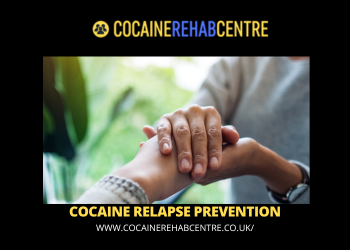
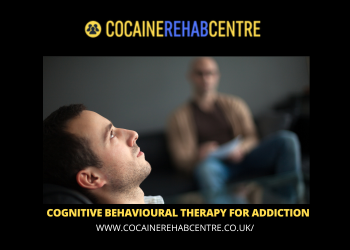





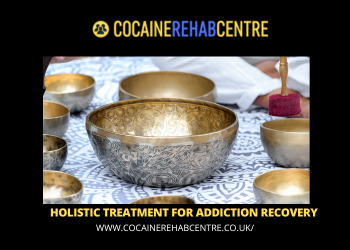




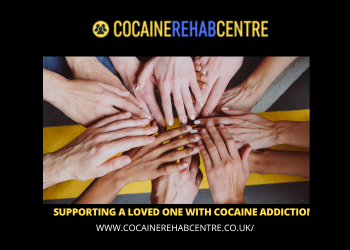

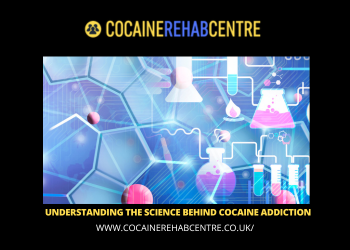


We Aim To Reply To All Enquiries With-in 24-Hours